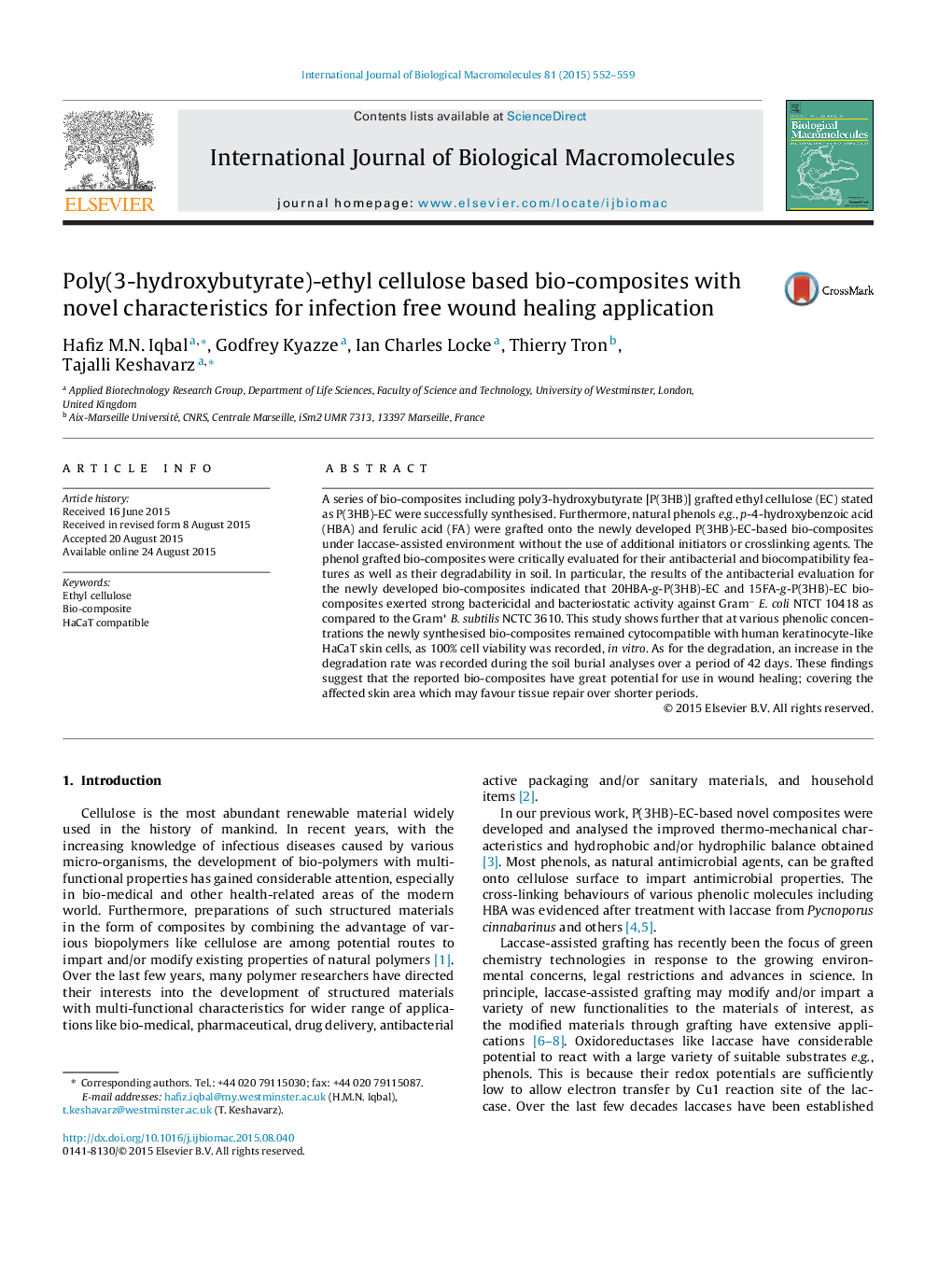| Article ID | Journal | Published Year | Pages | File Type |
|---|---|---|---|---|
| 8330426 | International Journal of Biological Macromolecules | 2015 | 8 Pages |
Abstract
A series of bio-composites including poly3-hydroxybutyrate [P(3HB)] grafted ethyl cellulose (EC) stated as P(3HB)-EC were successfully synthesised. Furthermore, natural phenols e.g., p-4-hydroxybenzoic acid (HBA) and ferulic acid (FA) were grafted onto the newly developed P(3HB)-EC-based bio-composites under laccase-assisted environment without the use of additional initiators or crosslinking agents. The phenol grafted bio-composites were critically evaluated for their antibacterial and biocompatibility features as well as their degradability in soil. In particular, the results of the antibacterial evaluation for the newly developed bio-composites indicated that 20HBA-g-P(3HB)-EC and 15FA-g-P(3HB)-EC bio-composites exerted strong bactericidal and bacteriostatic activity against GramâE. coli NTCT 10418 as compared to the Gram+B. subtilis NCTC 3610. This study shows further that at various phenolic concentrations the newly synthesised bio-composites remained cytocompatible with human keratinocyte-like HaCaT skin cells, as 100% cell viability was recorded, in vitro. As for the degradation, an increase in the degradation rate was recorded during the soil burial analyses over a period of 42 days. These findings suggest that the reported bio-composites have great potential for use in wound healing; covering the affected skin area which may favour tissue repair over shorter periods.
Keywords
Related Topics
Life Sciences
Biochemistry, Genetics and Molecular Biology
Biochemistry
Authors
Hafiz M.N. Iqbal, Godfrey Kyazze, Ian Charles Locke, Thierry Tron, Tajalli Keshavarz,
